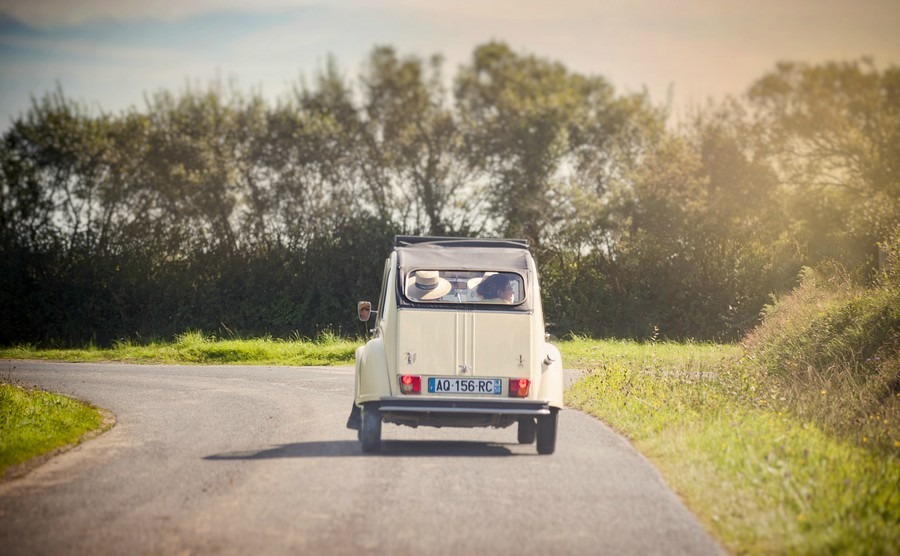Driving in France is still a genuine pleasure, with great cars and wide open roads. There is plenty of paperwork and rules, but it’s all intended to keep you safe, as a car buyer as well as a driver.
Buying a car in France, whether new or second-hand is not difficult, but there is plenty of paperwork involved. For general guidance from the start, it is always a good idea to consult your local mairie (town hall) who will be more than happy to advise on what is needed.
France, Germany and the USA fight it out for the title of who built the first car, but France is rightly proud of its car industry and most buyers do buy French
1. Prices
Prices of new cars are pretty much in line with the UK and if you buy new your local dealer will take care of the paperwork. Beware however, that second-hand car prices are high in France, so if you’re just after a cheap run-around it may well be advantageous to find a left-hand-drive car in the UK and import it to France. This is perfectly possible but you will have to re-register it with French plates if you’re planning to be in France for over six months. It is worth remembering that when you come to sell your second-hand car, you’re likely to get a higher price than in the UK.
Find homes in France via our property portal.
2. You don’t have to buy French
France, Germany and the USA fight it out for the title of who built the first car, but France is rightly proud of its car industry and most buyers do buy French. Although there’s a wide choice of French makes of car (and of course garages which readily stock spare parts etc.) don’t be afraid to buy a foreign car. Our local garage mechanic swears by Mercedes which in his view beats Renault for reliability etc. hands down!

Driving in France, always a pleasure (Massimo Santi / Shutterstock.com)
3. Be road legal
All second-hand cars in France over four years old need to have passed a Controle Technique (similar to the MOT) which must have been done six months before the date of sale. The sticker is always adhered to the windscreen along with the insurance certificate. After that the Controle Technique needs to be redone every two years.
If you’re a car nut and need a home with a large garage, look for property on the France Buying Guide property listings.
4. Transferring ownership
Buying a second hand car privately? Make sure that the seller cancels his “carte grise” by barring it through and signs it. There will also be a “certificate de cession” which is the certificate proving transfer of ownership, one copy for the seller, one for you and one to present to the Prefecture. Your local Prefecture will then officially transfer the car ownership into your name which is likely to cost around €200-300 and your carte grise will arrive in the post very soon after this.
5. Insurance
Car insurance is not too expensive in France and it is the car which is insured, not the person, so that anyone with your permission may drive the car.
6. Re-plate your British car
If you are re-plating your English car (or any other nationality) you will need to follow a procedure which sounds complicated but is not in practice! We have done this twice. You need a Certificate of Conformity, which the manufacturer should have for you. Then you need a “demande d’identification” obtainable from the local DREAL via the French government website. This is the authority that tests imported cars before they can be registered in France. Your mairie will help find your local one. You need to take these documents to the local Prefecture, who will assign you a new French number plate. The whole thing should not cost more than about €500 in this case. You can then go to your local garage to have your new French plates affixed – a cost of no more than €20.

Stunning French roads: the Millau Viaduct (Migel / Shutterstock.com)
7. Keep documents handy
Remember to keep your carte grise and insurance in your car as the police are entitled to ask to see these at any time. It is also the law to keep a warning triangle and high visibility jacket in your car.
8. Expect the unexpected
French drivers can be a little unpredictable so keep your wits about you at all times when driving. Remember the “priorite a droite” rule and if in doubt, simply slow down.
9. Fuel costs
Petrol is around the same cost as in the UK, diesel much cheaper still. Most petrol stations have automatic card paying machines, useful in rural France when driving out of hours.
The French have the reverse system to ours in that you start off with 12 points and any infraction means you will lose points
10. Get your French licence
You can keep your British licence, but if you are planning on making France your main home, it is wiser to change to a French one. The French have the reverse system to ours in that you start off with 12 points and any infraction means you will lose a point or more, depending on how serious it is. Don’t even think about drink driving: the allowance is lower in France and there has recently been a big crackdown on drink drivers. You should keep a breathalyser kit in your car. If you do have a drink driving infraction you are obliged to change your British licence to a French one.
If you’re buying a car in France, transfer the money with a currency specialist to ensure you get the best rate.
Driving in France is normally a complete pleasure with plenty of open roads, decent motorways constantly being maintained via the toll system and fewer cars on the road. We wish you happy French motoring!











